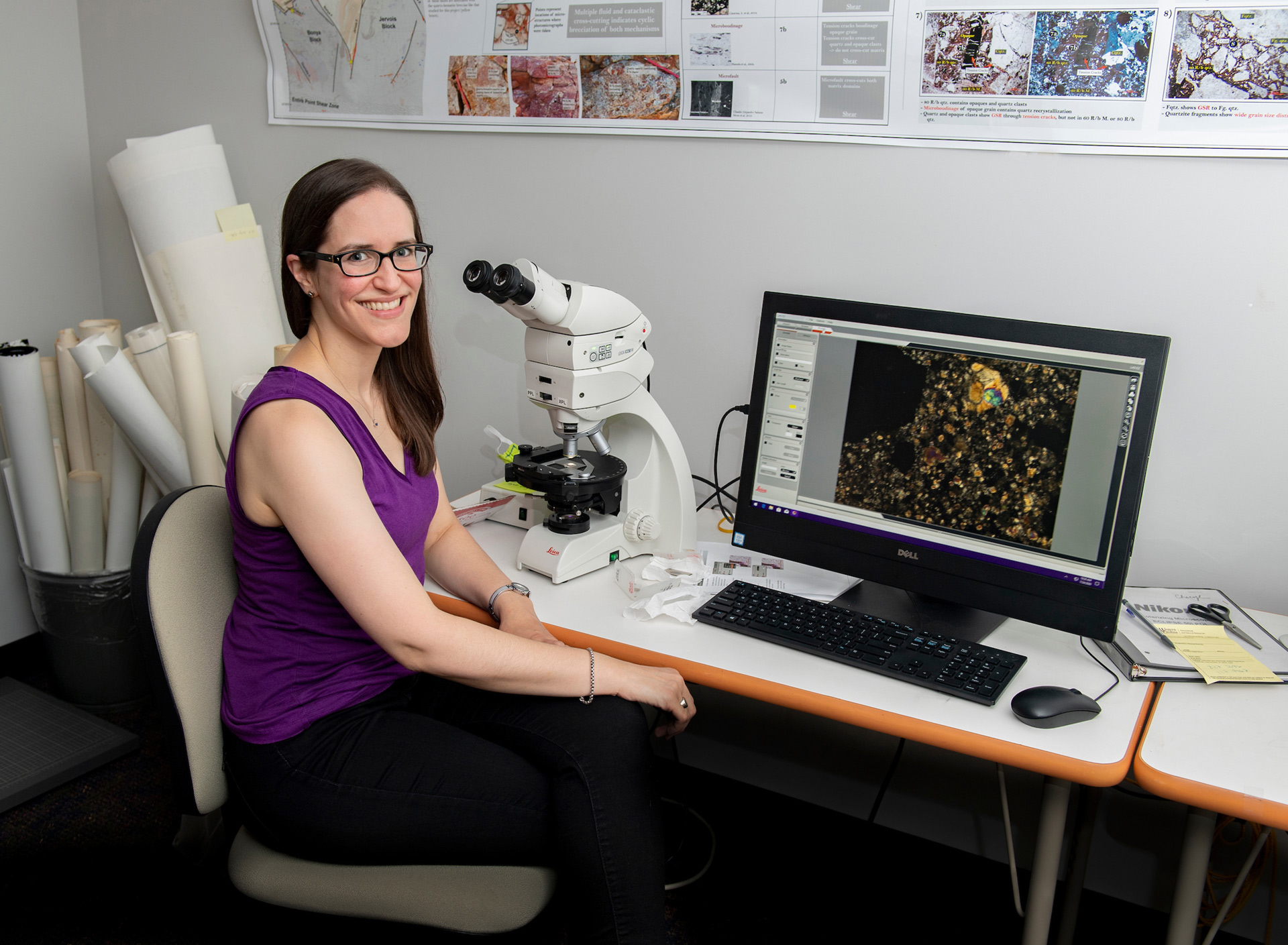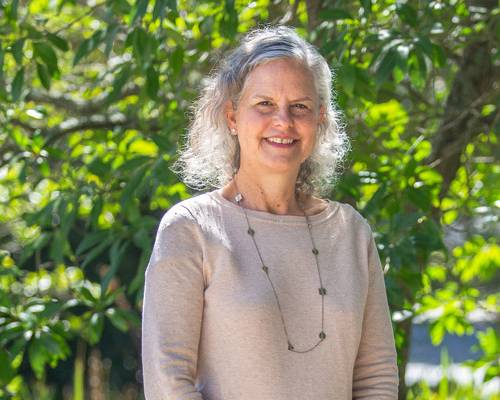MPA Alumni on the Front Line of Response to COVID-19
Locally executed, state managed and federally supported. That’s how the Federal Emergency Management Agency has long described the ideal way to respond to major disasters.
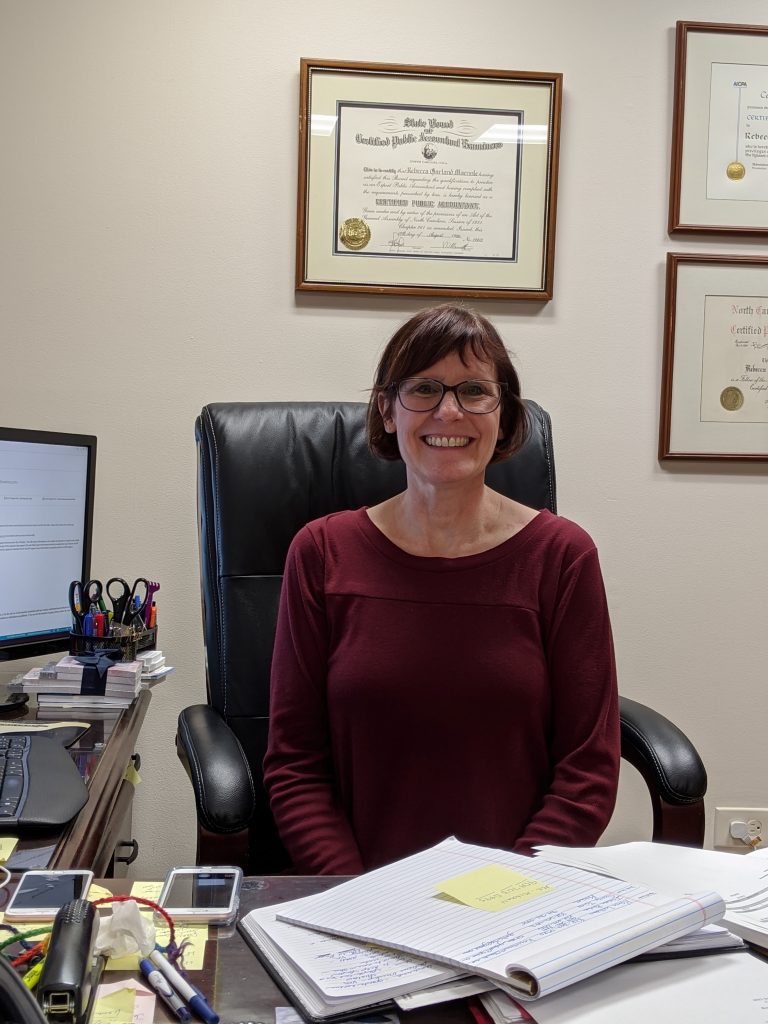
When Graham County Manager Rebecca Garland was a student in Western Carolina University’s master’s degree program in public affairs, little did she know that one day she would find herself on the frontlines of a “locally executed” response to a global health crisis.
Garland, who has been Graham County manager for more than three years, has attracted national media attention for being one of the first local government entities to close its borders to nonresidents in an effort to prevent the spread of COVID-19 into a community with no hospital and limited medical resources. Graham has set up checkpoints at the county line on roads leading into the county, established a curfew and mandated that all rental properties close.
“We have tried to keep the public informed. I have taken hate calls, and been called a Nazi and a communist. But I also have been thanked by many of our residents,” said Garland, a certified public accountant who also serves in the dual role of county finance officer.
“I have felt like I am living in the movie ‘Groundhog Day.’ I get up every single day and it feels like April 14 – the day before the tax deadline, over and over. The stress has been tremendous, and there are many days that I feel like the light at the end of the tunnel is a freight train,” she said. “The blessing in this experience is this: I have seen the hard work that we have put into team building and empowerment come to fruition. We have truly been a team, and I am so proud of all of our staff. I am also reminded constantly about why I am working for Graham County. I know that I have been placed here for a purpose, and that is to keep things steady and keep folks working together.”
Garland, a 2016 graduate of WCU’s MPA program, said she has found herself putting into practice many of the things she learned while a student, giving a special shout-out to Todd Collins, the David and Lois Steed Distinguished Professor of Public Policy, and his “Constitutional Law” class.
“Over the past few weeks I have been so thankful for the education I received in the MPA program. I was thinking the other day about how rapidly I have been thinking through scenarios and my ability to review policy decisions and evaluate our ability to implement them,” she said. “We have also had to quickly evaluate decisions, tweak and move on rapidly.”
"Over the past few weeks I have been so thankful for the education I received in the MPA program. I was thinking the other day about how rapidly I have been thinking through scenarios and my ability to review policy decisions and evaluate our ability to implement them." - Rebecca Garland, Graham County manager
Garland is far from the only graduate of WCU’s MPA program engaged in a “locally executed” global pandemic response. Her county colleague, Cris Weatherford, a 2017 graduate, is Graham’s director of social services.
“Departments of social services are typically not what everyone thinks of when essential services are mentioned after natural disasters and times like this, however our service must continue. People need food and nutrition and affordable health insurance now more than ever. We are still federally mandated to provide Child Protective Services and Adult Protective Services, and we have 32 children in foster care that we are still legally responsible for during these times,” Weatherford said.
But even in the face of social distancing, Weatherford’s department has been able to provide services by taking additional steps to ensure safety, including the use of personal protective equipment for mandatory face-to-face investigatory meetings, the installation of a telephone in the department’s central foyer for walk-up assistance, teleworking for department staff, and video conferencing for court-ordered visitation between parents and children in the county’s custody.
Weatherford says his MPA experience helped prepare him to work successfully in a time of upheaval by teaching him how bureaucracy works, providing him with experiences in leadership and communications, and showing the importance of public-private partnerships.
“The big takeaway for me from the program is effectiveness and efficiency,” he said. “In this situation, we have to shift that balance a bit from efficiency to effectiveness. By this I mean, how can we still effectively do our work and keep kids safe with all of these restrictions in place?”
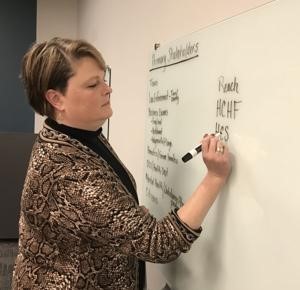
In Haywood County, Waynesville’s assistant town manager, Aime Owens, had to quickly shift and work with department heads to develop contingency plans when municipal officials made the decision to reduce town government operations to help minimize exposure to and the spread of COVID-19.
“It was of utmost importance that our employees be able to stay home, yet still have the ability to pay their bills and provide for their families,” said Owens, who earned her MPA from WCU in 2015. “I worked with all departments to identify the essential, semi-essential and nonessential functions and the employees associated with these operations. All departments now have solid operational plans in place to allow for continued services for citizens, while protecting our employees no matter how long this crisis may last.”
Like many in local government, Waynesville is beginning to feel the strain on its resources and is trying to maximize severely curtailed revenues while controlling expenses, yet still supplying needed services, Owens said. “Doing more with less has become the mantra we all have to follow for the foreseeable future,” she said. “With the loss of revenue from decreased sales tax, changes to the disconnect policies for utilities and lack of new growth during this time, all local governments are charged with continuing to provide services while balancing the safety of their employees. Eventually, there will be a bounce back, but I think that everyone’s fund balances will show just how great the impact will be for many months into the future.”
Owens recalls a lesson from her “Local Government Management” class taught by Jeff Richardson, former Asheville assistant city manager. “A manager has to do two things – be accessible and be flexible,” she said. “I think all managers and department heads, and even employees, have made changes that illustrate just how flexible everyone has to be in times of uncertainty. Every day there is a new challenge and every day carries the opportunity to shine.”
In nearby Henderson County, Amy Brantley, assistant county manager, has found that her role remains the same as before the pandemic – planning for the provision of services to county residents as efficiently and effectively as possible. But, the methodology has changed.
“We are in uncharted times, without the luxury of being able to consider established best practices and how those can be applied to our specific circumstances,” said Brantley, a 2018 MPA graduate. “Our mission, though, remains the basis of all decision making: Continue to provide uninterrupted emergency and public safety services to our citizens, and continue to provide nonemergency county services to our citizens in a safe environment for our employees and citizens alike. This is our first pandemic. Not all decisions are popular, but they’re all made with the best interest of our citizens and employees in mind.”
And, much like during her days as an MPA student, Brantley is constantly reminding herself of one thing: “Take care of yourself. This is a marathon, not a sprint.”
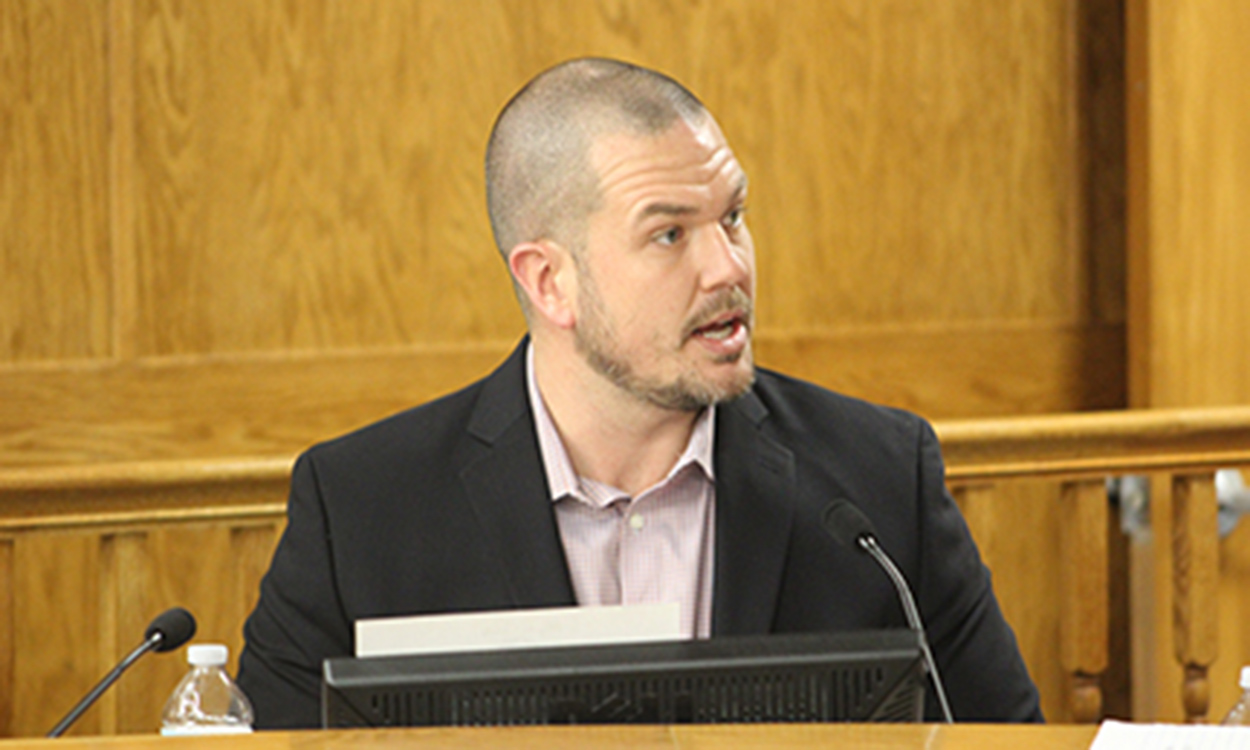
Similar to Brantley, Derek Roland, Macon County manager, says he has seen many changes in the way he and his team conduct business during the pandemic. “I do not feel, however, that my role as a county manager, which is to lead this organization, has changed. My leadership style has always been to put the right people in the right places, give them the tools they need to do their jobs and stay out of their way,” said Roland, who earned his MPA in 2013.
“If anything, the COVID-19 pandemic has reaffirmed to me the effectiveness of this leadership style, because leaders have continued to emerge within this organization during a time of fear and uncertainty that remains unparalleled to any other time that anyone alive today has ever faced. It is because of these leaders within the Macon County government that this organization, and the citizens of this county who depend on us for critical services, will make it through this unprecedented time in our nation’s history,” he said.
Typically, the spring months of March through May represent the busiest and most stressful time of year for county and town managers because that is when the budget process is in full swing, Roland said.
“The COVID-19 pandemic, as you can imagine, has added to the stress,” he said. “The ever-changing situation has led to the issuance of multiple executive orders and local state of emergency regulations, creating the need for emergency called meetings – I had never called one in seven years as county manager until now – and special called meetings of the Board of Commissioners, at one of which we appropriated approximately $150,000 from our fund balance to assist with unbudgeted expenditures related to COVID-19.”
Over the past several weeks, Macon County has had to develop a telework program from scratch, implement new leave policies, process forms for FEMA reimbursement, establish an emergency operations center, draft and disseminate public information statements, create a virtual process for building inspection and complete many other tasks that were not on the county’s radar screen at the beginning of the year, Roland said.
Heather Rimes, assistant professor of political science and public affairs and director of WCU’s MPA program, said she is proud of what her graduates are doing to serve their communities during this time of crisis – proud, but not surprised.
“The heart of the MPA program’s mission is to prepare our students for leadership positions in the public and nonprofit sectors, and at no time are well-prepared leaders more critical than during unprecedented events like the COVID-19 pandemic. However, when we proudly watch our alumni embark on careers as city and county managers, nonprofit directors, policy makers, first responders, data analysts, chief information officers and many other forms of leadership in public service provision, it is impossible to predict what crises and events each of these individuals will be called upon to navigate,” Rimes said.
“We prepare them to confront these unknowns by integrating throughout our curriculum a core set of skills, emphasizing critical thinking and evidence-based decision making from a foundation of public service values that include ethical behavior, effective governance, regional stewardship, equity and inclusion,” she said.
Program Overview
Location: Biltmore Park
Full-Time or Part-Time
Prerequisites: None
App. Deadline: One Week Prior to Term
Multidisciplinary, real application
Discover More About the Program
